 ★★★½
★★★½
“I’d have settled for two of three.”
This has been a long, long time coming. I’ve been a fan of Yeoh since seeing her Hong Kong starring debut, Yes, Madam, which came out all the way back in 1985. Over the years since, her career has had its ups and downs, including complete retirement after her marriage in the late eighties. She returned, and is the only actress to have appeared in two movies rated five stars here: Heroic Trio and Crouching Tiger, Hidden Dragon. But her career in Hollywood has been limited to sterling support roles, in both movies and television, encompassing everything from Bond film Tomorrow Never Dies through Star Trek: Discovery to Crazy Rich Asians. A starring role, appropriate to her talents, never seemed to come along.
Until now. Thirty-seven years after Yes, Madam, and at the age of 59, this film finally puts Yeoh where she deserves to be: front and centre. Yet, perhaps partly due to how long I’ve been waiting for this, I must confess to being a bit disappointed this is not a classic to match the titles listed above. Oh, it certainly has its moments, and Yeoh is as good as expected. However, its 139-minute running-time feels more a curse than a blessing. The concept at its core is almost infinite in scope, and I did feel the movie was trying to include all of it. Less could have been more, with a targetted approach preferable to the relentless overload adopted by the makers, which left me feeling as if I was drinking from a fire-hose.
The multiverses here literally rotate around Evelyn Wang (Yeoh), who runs a laundromat teetering on the edge of failure, with her husband, Waymond (Quan). Their marriage is also failing, her relationship with her daughter, Joy (Hsu) is on rocky ground, and she has to go to an appointment with hard-ass IRS tax auditor Deirdre Beaubeirdra (Curtis). The last is where things kick off, as she is visited by a Waymond from an alternate universe, who tells Evelyn she is the only hope of foiling the evil Jobu Tupaki. That’s an alternate Joy, who has gone insane and created a black hole-like vortex which could destroy all the multiverses. Fortunately, Evelyn’s abject failings at life give her the ability to tap into all the skills and knowledge of the other, better versions of herself.
 Like I said: almost infinite in scope. Apparently, co-writer/director Kwan was diagnosed with ADHD during the creative process: to be frank, it shows. While the imagination on view is admirable, the film bounces about between ideas at a ferocious rate, almost regardless of whether they deserve it. We spend an inordinate amount of time in a multiverse where everyone has long, floppy fingers. Yet there is also buttplug-fu, which is an example of the movie going places you’d never have expected could be so entertaining. Or a lengthy, surprisingly engrossing, scene in which two rocks in an otherwise lifeless multiverse have a conversation in captions. Because why not?
Like I said: almost infinite in scope. Apparently, co-writer/director Kwan was diagnosed with ADHD during the creative process: to be frank, it shows. While the imagination on view is admirable, the film bounces about between ideas at a ferocious rate, almost regardless of whether they deserve it. We spend an inordinate amount of time in a multiverse where everyone has long, floppy fingers. Yet there is also buttplug-fu, which is an example of the movie going places you’d never have expected could be so entertaining. Or a lengthy, surprisingly engrossing, scene in which two rocks in an otherwise lifeless multiverse have a conversation in captions. Because why not?
To the film’s credit, it never abandons its characters, and that helps keep it grounded. Albeit only just, on occasion the movie standing on its tippy-toes as it tries desperately to avoid being blown away by its own excesses. It’s perhaps telling that, despite all the film’s visual bluster, the most effective moment for me was among the simplest, one character telling another, “In another life, I would’ve been happy just doing laundry and taxes with you.” As such, Yeoh is the story’s heart, and gets to demonstrate her unquestionable acting talent. It has been fascinating to see the development of that, especially considering her lack of not just experience but any formal training. I mean, she first entered the field close to four decades ago, as a former Miss World contestant. How many of them eventually go on to get talk of an Oscar?
It’s as a result of this that I kept watching the film, because I genuinely cared what happened to Evelyn. I wanted to see her figure it all out and make peace with the various forces trying to tear her humdrum life apart. From that angle, it’s close to soap-opera, albeit an unusually effective one. Except, of course, the means by which that peace is potentially achieved, includes multiverse hopping, and fighting an evil version of your own daughter, who wields a gurgling plughole of doom. It’s the overlap between the mundane and bizarre where this finds its own voice. The problem is, it tries too hard to live up to the title. Sure, give us everything, everywhere. I’d just rather it hadn’t done so, all at once.
Yet, similarly, it leaves an awful lot of potential on the table. Why is kung-fu virtually the only talent Evelyn uses? Tap into a universe where she’s a cab driver, and give us an epic car-chase. Or the one where she’s a cat-burglar, for heist purposes. It’s not hard to come up with a dozen such threads. Perhaps the makers were constrained by their budget, a relatively cheap $25 million – less than Crazy Rich Asians. They do an admirable job of squeezing value out of it; again, the sheer pace probably helps, with your brain trying so desperately to keep up, it’s hard-pushed to pay attention to any of the finer details.
But I’m glad I won’t go to my grave with my final paid cinematic experience being Terminator: Dark Fate. [Though the two Neanderthals beside us, talking loudly and checking their phones throughout, really make me think we are done with theatres] The Daniels deserve credit for the obvious invention displayed, and this is the kind of original property I’m happy to support, over another sequel and/or shitty comic adaptation. I also must mention the supporting cast, who are uniformly great, particularly Hsu as both aggravated daughter and multiiverse threatening villainess [There’s also a cameo by another eighties Hong Kong action actress, Michiko Nishiwaki. Maybe she’ll get her own movie next?]. That it stars one of the most under-rated actresses in Hollywood, finally getting the opportunity she deserves, is alone reason enough to see this. Just don’t expect too much.
Dir: Dan Kwan, Daniel Scheinert
Star: Michelle Yeoh, Stephanie Hsu, Ke Huy Quan, Jamie Lee Curtis
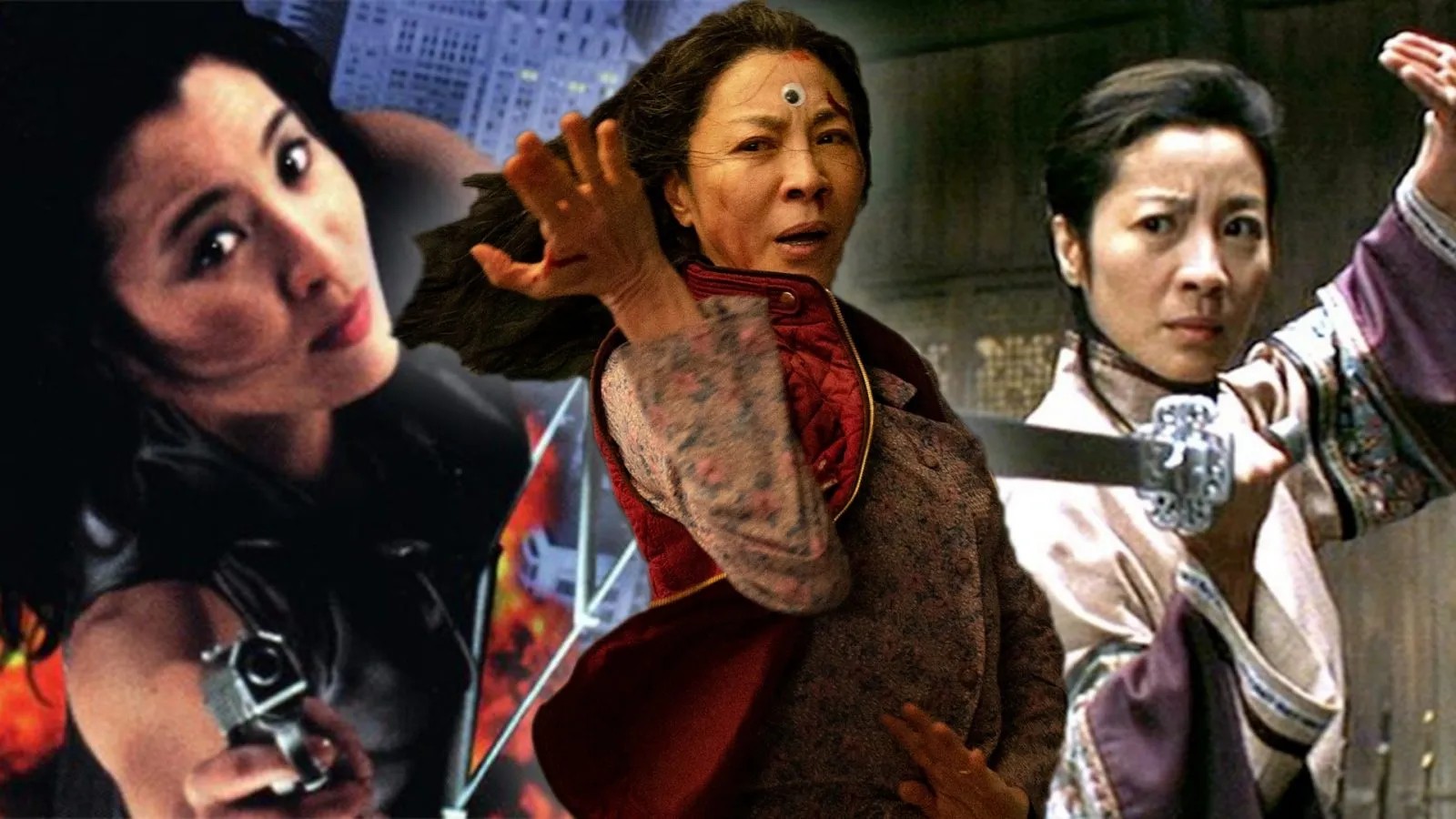
 I was pleasantly surprised when this random kung-fu film found Tubi (under the Silver Fox title) turned out to be by the creator of Wolf Devil Woman. which was batshit crazy, but at least quite entertaining. This is, unfortunately, only half of that – and worse, it’s the insanity which is delivered, with the entertainment being only sporadic in nature. I will say, in the film’s defense, the presentation is likely not helping. There’s no subbed version I’ve been able to find, and the English language one is badly dubbed, cropped visually and is likely also cut (either that, or the editing is worse than terrible).
I was pleasantly surprised when this random kung-fu film found Tubi (under the Silver Fox title) turned out to be by the creator of Wolf Devil Woman. which was batshit crazy, but at least quite entertaining. This is, unfortunately, only half of that – and worse, it’s the insanity which is delivered, with the entertainment being only sporadic in nature. I will say, in the film’s defense, the presentation is likely not helping. There’s no subbed version I’ve been able to find, and the English language one is badly dubbed, cropped visually and is likely also cut (either that, or the editing is worse than terrible).




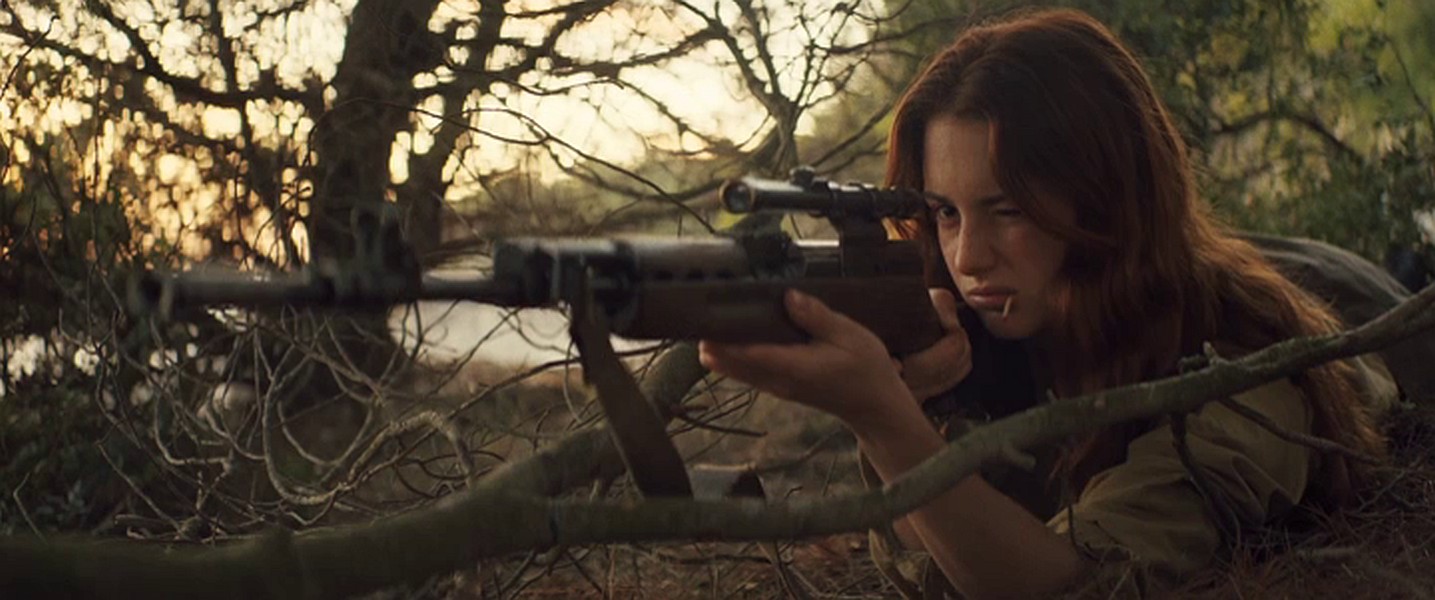 ★½
★½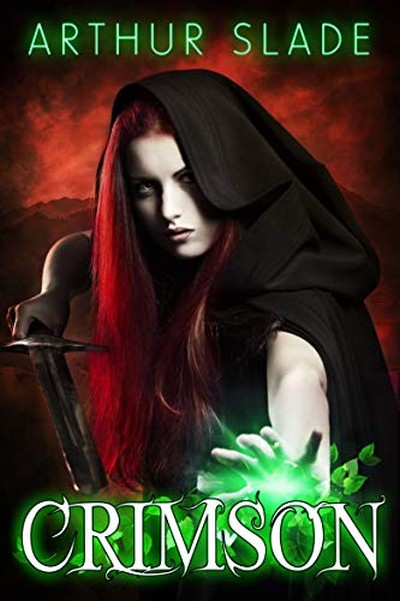
 This is not your normal action heroine film. Nor is it your normal zombie apocalypse film. While it certainly nods in both directions, it seems entirely committed to going in its own direction. My mental jury is still out on whether or not this was a good thing or not. I think if I’d perhaps been prewarned what to expect, I might have been better equipped to handle this. It takes place after the outbreak of a plague, with the dwindling number of survivors now holed up in two cities: Weimar, where infection is an immediate death sentence, and Jena, reported to be trying to research a cure.
This is not your normal action heroine film. Nor is it your normal zombie apocalypse film. While it certainly nods in both directions, it seems entirely committed to going in its own direction. My mental jury is still out on whether or not this was a good thing or not. I think if I’d perhaps been prewarned what to expect, I might have been better equipped to handle this. It takes place after the outbreak of a plague, with the dwindling number of survivors now holed up in two cities: Weimar, where infection is an immediate death sentence, and Jena, reported to be trying to research a cure.  ★★★★
★★★★ Well, this was a surprise. I was not expecting too much, this being a movie released straight to Hulu or Disney+ (depending on your territory), and starring someone best known for rom-com franchise, The Kissing Booth. Actually, scratch the “too” from that sentence. I went in on the basis that I was contractually obliged to watch it, as the guy running this site. I say this, so you’ll understand how unexpected it is to be writing this: it’s the best action-heroine film of the year so far. This is just thoroughly entertaining, and as the tag-line above suggests, is as close as I’ve ever seen to a genuine, female version of the greatest action movie of all-time.
Well, this was a surprise. I was not expecting too much, this being a movie released straight to Hulu or Disney+ (depending on your territory), and starring someone best known for rom-com franchise, The Kissing Booth. Actually, scratch the “too” from that sentence. I went in on the basis that I was contractually obliged to watch it, as the guy running this site. I say this, so you’ll understand how unexpected it is to be writing this: it’s the best action-heroine film of the year so far. This is just thoroughly entertaining, and as the tag-line above suggests, is as close as I’ve ever seen to a genuine, female version of the greatest action movie of all-time. 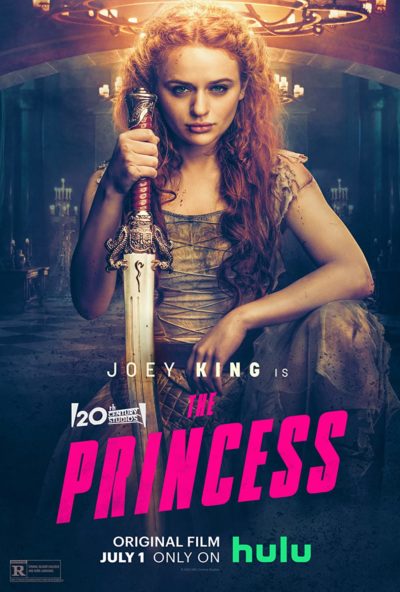 This reaches its height in a glorious, extended sequence, with the Princess battling her way down the tower’s staircase. It feels as if it’s 20 minutes long, such is the energy contained in it. There’s even a beautiful moment of tension releasing humour, part of a running gag involving one of Julian’s minions who is too fat for all the stairs he’s ordered to climb. Nothing thereafter, including the inevitable fight against her wannabe husband, quite reaches the same heights. Glover is good value as Julian, staying just this side of a pantomime villain. As Die Hard shows, having a memorable antagonist is an important element. He’s not quite Alan Rickman – though who is? And I do have to question some of Julian’s decisions.
This reaches its height in a glorious, extended sequence, with the Princess battling her way down the tower’s staircase. It feels as if it’s 20 minutes long, such is the energy contained in it. There’s even a beautiful moment of tension releasing humour, part of a running gag involving one of Julian’s minions who is too fat for all the stairs he’s ordered to climb. Nothing thereafter, including the inevitable fight against her wannabe husband, quite reaches the same heights. Glover is good value as Julian, staying just this side of a pantomime villain. As Die Hard shows, having a memorable antagonist is an important element. He’s not quite Alan Rickman – though who is? And I do have to question some of Julian’s decisions. 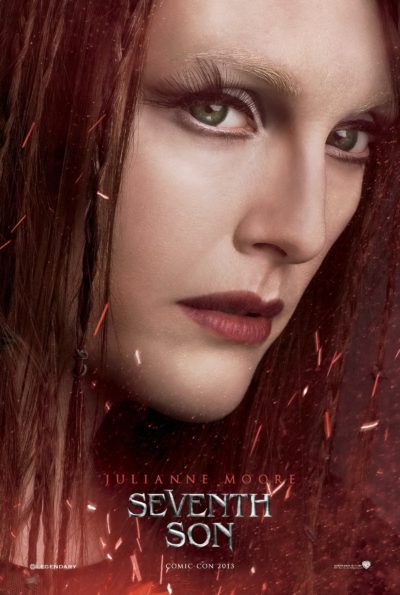 Despite generally terrible reviews, this is definitely not, by any means, a terrible movie. It is, admittedly, a fairly generic sword-and-sorcery flick, in which a hero must rise from a common background to save the world from a terrible magical threat. But it looks spiffy – the hundred million dollar budget is on the screen. If the central performance has its issues, there’s enough around the fringes to make both for an adequately entertaining experience, and also merit the existence of a review here. In particular, the main antagonist is the evil witch Mother Malkin (Moore). She escapes from the prison to which she had been confined years ago by Gregory (Bridges), now the last survivor of his order of witch-hunters.
Despite generally terrible reviews, this is definitely not, by any means, a terrible movie. It is, admittedly, a fairly generic sword-and-sorcery flick, in which a hero must rise from a common background to save the world from a terrible magical threat. But it looks spiffy – the hundred million dollar budget is on the screen. If the central performance has its issues, there’s enough around the fringes to make both for an adequately entertaining experience, and also merit the existence of a review here. In particular, the main antagonist is the evil witch Mother Malkin (Moore). She escapes from the prison to which she had been confined years ago by Gregory (Bridges), now the last survivor of his order of witch-hunters.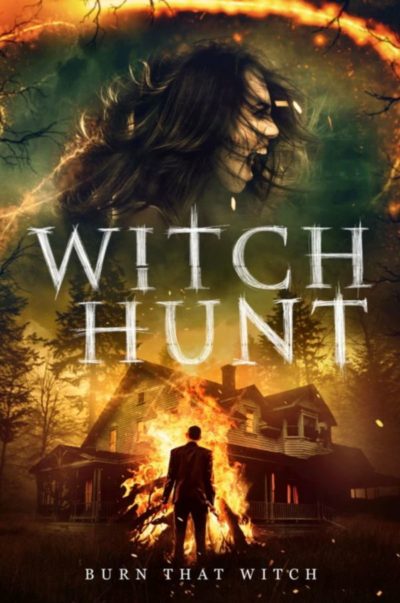 This is set in the everyday world – but with one major tweak. Witchcraft exists, and has been outlawed in the United States by the 11th amendment. Now, government agents from the BWI seek out witches, using tried and true methods from the middle ages (the “sink test” is exactly what it sounds like), and punish those found or suspected to be practicing witchcraft. But those opposed to this have set up an “underground railroad” to smuggle the targets over the boarder to Mexico. Teenage girl Claire (Adlon) is part of one such family, courtesy of her mom Martha (Elizabeth Mitchell); Dad is out of the picture. Claire is rather ambivalent about their activism, since she just wants to fit in at school. But the arrival of Fiona (Cowen) and her little sister, siblings whose mother was burned at the stake, forces Claire out of her professed neutrality,. Especially as the investigation of the unrelenting BWI Agent Hawthorne (Camargo) gets closer to home.
This is set in the everyday world – but with one major tweak. Witchcraft exists, and has been outlawed in the United States by the 11th amendment. Now, government agents from the BWI seek out witches, using tried and true methods from the middle ages (the “sink test” is exactly what it sounds like), and punish those found or suspected to be practicing witchcraft. But those opposed to this have set up an “underground railroad” to smuggle the targets over the boarder to Mexico. Teenage girl Claire (Adlon) is part of one such family, courtesy of her mom Martha (Elizabeth Mitchell); Dad is out of the picture. Claire is rather ambivalent about their activism, since she just wants to fit in at school. But the arrival of Fiona (Cowen) and her little sister, siblings whose mother was burned at the stake, forces Claire out of her professed neutrality,. Especially as the investigation of the unrelenting BWI Agent Hawthorne (Camargo) gets closer to home.
 ★★★½
★★★½ Like I said: almost infinite in scope. Apparently, co-writer/director Kwan was diagnosed with ADHD during the creative process: to be frank, it shows. While the imagination on view is admirable, the film bounces about between ideas at a ferocious rate, almost regardless of whether they deserve it. We spend an inordinate amount of time in a multiverse where everyone has long, floppy fingers. Yet there is also buttplug-fu, which is an example of the movie going places you’d never have expected could be so entertaining. Or a lengthy, surprisingly engrossing, scene in which two rocks in an otherwise lifeless multiverse have a conversation in captions. Because why not?
Like I said: almost infinite in scope. Apparently, co-writer/director Kwan was diagnosed with ADHD during the creative process: to be frank, it shows. While the imagination on view is admirable, the film bounces about between ideas at a ferocious rate, almost regardless of whether they deserve it. We spend an inordinate amount of time in a multiverse where everyone has long, floppy fingers. Yet there is also buttplug-fu, which is an example of the movie going places you’d never have expected could be so entertaining. Or a lengthy, surprisingly engrossing, scene in which two rocks in an otherwise lifeless multiverse have a conversation in captions. Because why not?
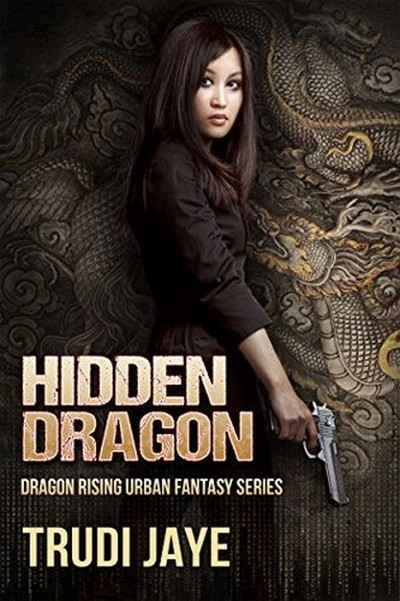 This version of the world is more or less identical to our own. Except, several hundred years ago, there was a catastrophe in which massive dragons rampaged around, with humans being collateral damage. A secret society called the Earthbound managed to end the thread, partly through the invention of the Spell Web – basically, an Internet for magic users. Now, the Earthbound and a secret government organization, the Supernatural Intelligence Group, operate to keep a largely oblivious population in the dark. Though everyone knows dragons are extinct… aren’t they?
This version of the world is more or less identical to our own. Except, several hundred years ago, there was a catastrophe in which massive dragons rampaged around, with humans being collateral damage. A secret society called the Earthbound managed to end the thread, partly through the invention of the Spell Web – basically, an Internet for magic users. Now, the Earthbound and a secret government organization, the Supernatural Intelligence Group, operate to keep a largely oblivious population in the dark. Though everyone knows dragons are extinct… aren’t they?